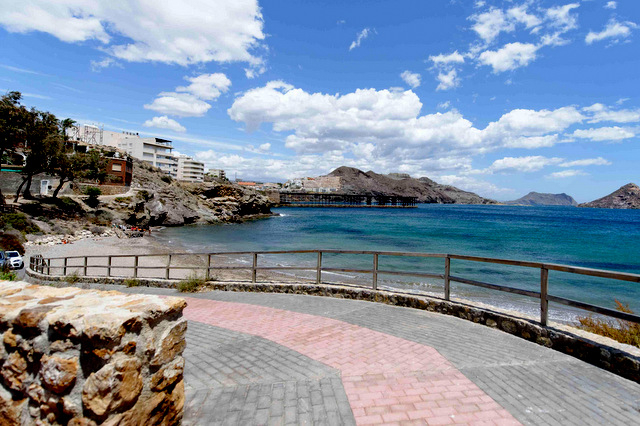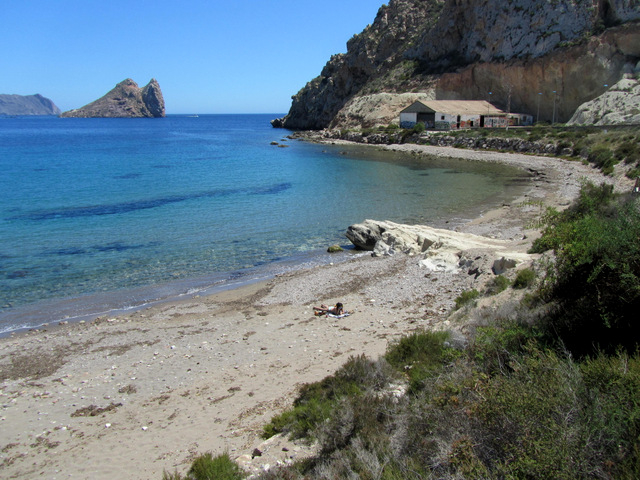

- EDITIONS:
 Spanish News Today
Spanish News Today
 Murcia Today
Murcia Today
 Alicante Today
Alicante Today
Águilas beaches: Playa de los Cocedores
Spectacular views across the Hornillo bay from this beach east of Águilas
The Playa de los Cocedores is at the western end of the Bahía de Hornillo, which in turn is to the eastern side of the built-up area of the town of Águilas. Access is from the street which runs uphill behind the modern Auditorio Infanta Elena, past the CIMAR museum and aquarium, and the beach is then reached via a ramp or steps.
The Playa de los Cocedores is not the most popular of the 36 Águilas beaches as its location makes it fairly difficult to find and it lacks parking.
The 180-metre-long beach is a mixture of pebbles and sand, but is mainly pebbles and due to the lack of parking and the fact that there are so many beautiful sandy beaches close by, attracts few bathers. For this reason it has little in the way of facilities, which are limited to bins.

Neither is the Playa de los Cocedores particularly well-served by shops and restaurants: there are no such establishments in the immediate vicinity, and although the beach is only a couple of hundred metres from the Águilas Plaza shopping mall this walk takes you up and over the hill and underneath the bridge over which the railway tracks took the cargo trains to the pier.
However, it does have stunning views. Looking out to sea the picturesque view towards the Isla del Fraile is framed on the right by the headland of Punta del Nido del Cuervo (literally “crow’s nest point”) and to the left by the Embarcadero del Hornillo, the pier or jetty which was used in the past by trains bringing minerals from the inland mines and quarries for export by ship. This is a reminder of Águilas’ industrial past, but of course nowadays the tracks are no longer used and there is no sign of the dirt and activity which brought about the rise of Águilas during the industrial revolution: the water here is clear and clean, as it is along the whole of the coastline of the municipality.

The name of the beach, Cocedores, is linked to the activity of processing esparto grass, part of which involved the process of soaking and heating the grass to make it more pliable, work which was undertaken on this beach.
It is the fifteenth beach in the series of 36 Águilas beaches which run along the 28 kilometres of Águilas coast, working from the Almería coastline in the west down to the Lorca municipality and offer both urban and wild beaches.
Click for full list of beaches of Águilas
More information about Águilas including beaches, what to see, what's on and tourist information can be found on ÁGUILAS TODAY
staff.inc.and
